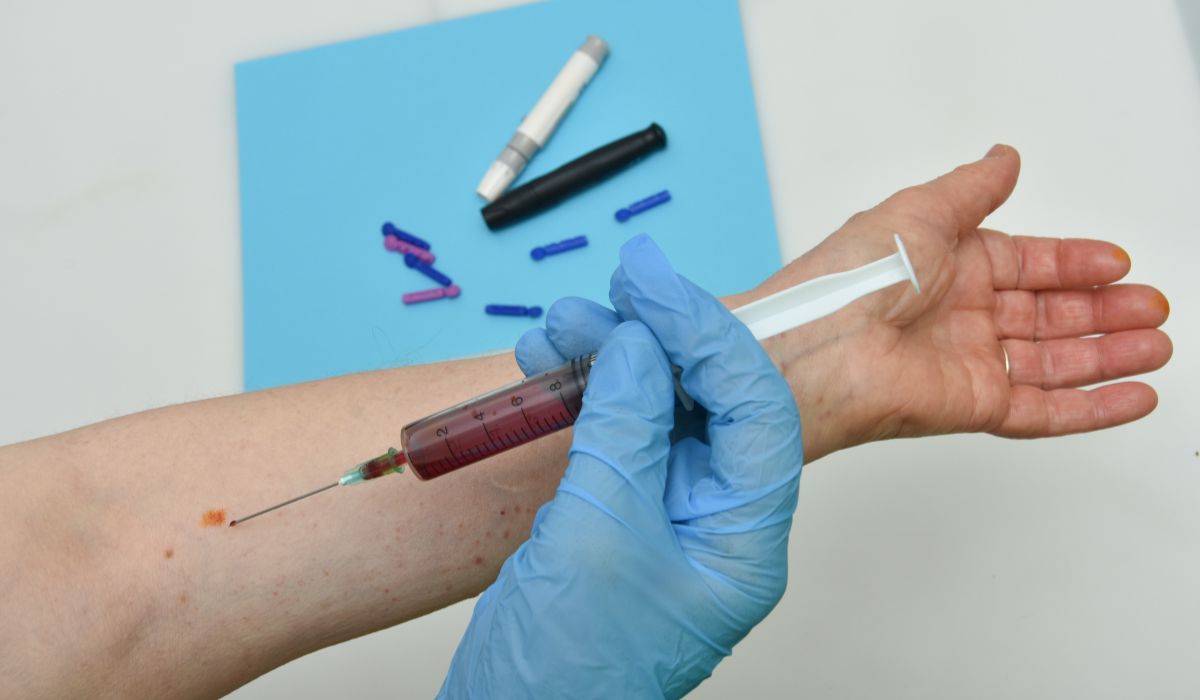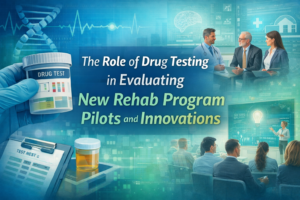Understanding Methadone and Drug Tests
Methadone is a medication often used to treat people with addiction to opioids. It helps by lowering cravings and easing withdrawal symptoms. But because it is a drug, many people ask: does methadone show up on a drug test?
The answer is yes. Methadone can be detected in many types of tests, such as urine or saliva. Lynk Diagnostics, a trusted drug testing center for rehab facilities, helps patients and providers understand how testing works.
Drug tests are used to check for substance abuse, monitor medication use, and support people in recovery. Knowing how methadone shows up on a test is important for both health and safety.
What Is Methadone?
Methadone is a type of opioid. Even though it is an opioid, it does not create the same high as other drugs like morphine or heroin when taken as prescribed. Instead, it helps people avoid the harmful cycle of substance abuse.
Doctors may prescribe methadone in certain doses to help people recover. Because methadone is an opiate-like medication, it is controlled and closely monitored.
Why People Take Methadone
- Addiction treatment: Methadone is often used in programs to treat opioid addiction.
- Pain management: In some cases, doctors may use methadone for long-term pain.
- Opioid replacement therapy: It can help replace stronger opioids like heroin and prevent relapse.
While methadone helps many people, it is still a drug that shows up on a test.
Does Methadone Show Up on a Drug Test?
Yes, methadone does show up on a drug test. Standard drug tests often look for opioids like morphine, but methadone needs a special panel to be detected. Many modern tests include methadone because it is used in treatment programs and is sometimes misused.
At Lynk Diagnostics, tests are designed to detect methadone as part of routine drug testing for rehab centers.
How Long Does Methadone Stay in the Body?
The length of time methadone can be detected depends on the type of test and the person’s dose.
- Urine test: Methadone can be found for 2 to 14 days.
- Saliva test: Detectable for 24 to 48 hours.
- Blood test: Shows up for a few days.
- Hair test: May show methadone for 90 days or more.
The exact time depends on factors like health, age, and metabolism.
Types of Drug Tests That Detect Methadone
Urine Tests
Urine tests are the most common. They are easy, quick, and widely used to check for substance abuse. Methadone can be detected in urine for several days after use.
Saliva Tests
Saliva testing is less common but still used in some settings. Methadone may appear in saliva within a short time after a person takes it.
Blood Tests
Blood tests are less common for routine drug testing but are very accurate. They can detect methadone soon after use.
Hair Tests
Hair tests can show long-term use of methadone. Even if someone stops using it, traces may remain in their hair for months.
Methadone vs. Other Opioids in Drug Testing
Methadone is different from other opiates like morphine or buprenorphine. Standard tests for opioids may not always catch methadone unless it is included in the panel.
That’s why specialized drug testing centers, such as Lynk Diagnostics, use tests that can find methadone along with other opioids.
Why Drug Tests for Methadone Matter
Drug tests for methadone are important for:
- Rehab programs: To make sure patients are taking their prescribed medication.
- Workplaces: To ensure safety for jobs that require focus.
- Legal settings: Courts may require testing to monitor substance use.
- Health care: Doctors use results to check if treatment plans are working.
Methadone and Substance Abuse
While methadone is helpful, it can also be misused. Some people may take more than their prescribed dose, or mix it with alcohol or other drugs. This can be dangerous and even life-threatening.
Drug testing helps protect patients by making sure methadone is used safely.
Methadone and Recovery
Methadone is a tool for recovery, but it works best with therapy and support. Substance abuse treatment programs often use methadone along with counseling, group therapy, and medical care.
Lynk Diagnostics plays a role by offering accurate drug testing that supports recovery programs. Testing builds trust and helps people stay on track.
Does Methadone Interact With Alcohol or Other Drugs?
Yes. Methadone can be harmful if mixed with alcohol or other opioids. It can slow breathing and lead to overdose. That’s why monitoring with a drug test is so important for patients.
How Rehab Facilities Use Methadone Testing
Rehab centers often partner with drug testing labs like Lynk Diagnostics to monitor patients. Regular testing:
- Confirms proper dose is being taken.
- Detects other drugs that may cause problems.
- Provides peace of mind to families and doctors.
Methadone, Buprenorphine, and Other Medications
Like methadone, buprenorphine is another medication used for opioid addiction. Both drugs show up on a drug test when the right panels are used. Rehab programs often test for both to ensure patients follow treatment correctly.
Key Factors That Affect Methadone Detection
- Dose: Higher doses may stay in the system longer.
- Metabolism: Each person’s body processes drugs differently.
- Health: Liver and kidney health can change how long methadone lasts.
- Frequency: Taking methadone often can extend detection time.
FAQs About Methadone and Drug Testing
Does methadone show up on a drug test at work?
Yes. Many workplace drug tests include methadone, especially for jobs with safety risks.
How long does methadone stay in urine?
Methadone may show in urine for 2 to 14 days, depending on the person and dose.
Can methadone be detected in saliva tests?
Yes. Methadone can appear in saliva within 24 hours and last up to 48 hours.
Is methadone the same as morphine?
No. Both are opioids, but methadone is different from morphine and is often used for addiction treatment.
Can methadone use be monitored in rehab?
Yes. Rehab centers often work with Lynk Diagnostics to run regular drug tests for patients on methadone treatment.
Final Thoughts
So, does methadone show up on a drug test? Yes, it does. Methadone can be detected in urine, saliva, blood, and hair tests. Rehab centers, workplaces, and healthcare providers all use drug testing to support recovery, monitor substance abuse, and protect health.
Lynk Diagnostics offers trusted and accurate testing to help patients, families, and providers feel confident in treatment and recovery.








